Eco-Challenge Fiji 12 - THE ROAD!!!
Eco-Challenge Fiji:
World’s Toughest Race
Tuesday, September 17th - Wednesday, September 18th
Spoilers: Team Eco DXB, Team Ireland AR
Team US Military left just before dawn on day seven for what would be the longest trekking section of the race. They set off in good spirits and warmed up quickly. Team Aussie Rescue caught up with the team and the two chatted while traveling together for a bit before Team US Military pulled ahead again.
After a few hours of trekking the team came to a village and stopped at a Fijian house where some Eco-Challenge Fiji race volunteers were staying. They refilled water and used the bathroom. While there, they also found out a competitor on Team Eco DXB had been hit by a drunk driver the night before while mountain biking. While he was fine, his bike was trashed. The team was out of the race.
The team set off once again and reached the next CP in no time. The next section was a long, hot hike down to the river and back up to a ridge line. The military team scouted, then spent some time debating the right path to take down to the river. Eventually, they settled on what would prove from the hillside to be the obvious path, while Team Aussie Rescue decided to head further west. Eventually they would back out and descend in Team US Military’s footsteps. At the river, while the military team was resupplying water, the Aussies and another team would catch up. Rather than deciding to head directly over the ridge, the other team decided to head west down the river. The two teams would not cross paths again.
Team US Military, heading up over the ridge path, was greeted by a helicopter circling overhead and conducting fly-bys for about twenty minutes. The Eco-Challenge Fiji production team was undoubtedly capturing the iconic overhead shot of the team’s members heading up the ridge. After taking the ridge, Team US Military proceeded down the scorching hot road with no problem save having to fight off some horses for a turn at a natural spring to refill water bottles. After the pit stop, the military team started the “path that the locals take" to get down to the Ba River crossing.
Of course there’s a big supply of a certain brand of bottled water there.
It was early afternoon and the team members were anticipating being at Camp 4 for dinner that evening. Finding the “path that the locals take” proved a little more difficult than expected for Spangler, who was navigating. Caitlin was concerned; the guys were going more easterly than what the local had pointed out to Caitlin about an hour prior. The team decided it wise to go down to a power grid service road, and then hike down to the river from there as the bushwhacking on the uneven, rock-filled ground was taking its toll on their feet. Believing the team was at a bend in the road south of the river confluence they were seeking, Spangler decided to descend, and the team finally made its way down to the river as the sun was setting.
Upon hitting the river, Jesse and Spangler were convinced the team only had a couple of bends down the river until the team hit the river trail detailed in the expedition guidebook. The biggest problem was safety--night had fallen and the team was again hopping across wet rocks at night with insufficient headlamps...this time in a much broader, much deeper, much faster river. In an attempt to secure swifter passage, the team crossed the river—it was cold, and the water was fairly swift and waist deep. The team began rock hopping up the river on the northern bank but it was not long until they were cliffed out and could no longer go any further.
This was the lowest point for the team on the course. Cold, wet, and lost there was no question the team was demoralized. They were just hoping to get back to the road and reset.
Blocked on the northern shore, the team decided to swim across again, which really sucked some more because it was colder and they could no longer touch the bottom. They swam across, continued further down river, and then swam across again. Continuing this trend of swimming across the river a while longer, the team realized that they did not know where they were. After about six hours on the river (rock-hopping downstream, crossing multiple times, stopping for twenty minutes here and there for a nap), the disoriented Team US Military finally decided to get back up to the road to figure out where the hell they were. This was the lowest point for the team on the course. Cold, wet, and lost there was no question the team was demoralized. They were just hoping to get back to the road and reset.
Back on the southern shore, Joshua pooled the team’s remaining food--far behind their estimate for their Camp 4 arrival, the team was running painfully low. The team divided it up in favor of Spangler, who was behind on caloric intake and desperately needed to refuel, especially given what was in store for the battered team for the next two hours.
It was a long way up--bushwhacking through bamboo leaves twice as tall as the members of Team US Military. There was no way to tell for certain how far up the road was, as the team could not see anything past the bamboo directly in front of them. Joshua led the way, nose glued to his compass. He was literally shoving down the bamboo by thrusting his trekking pole sidelong into the bush so that the team could climb on top of it--a technique his fiancee had days before mentioned she had heard about from...none other than Eco-Challenge Fiji host Bear Grylls himself. It was extremely slow progress and a fight working through the bamboo up an extremely steep grade.
After about ten minutes, Caitlin reached back and realized her climbing helmet was no longer attached to her pack. She must have forgotten to reattach it after one of the team’s naps/snack breaks. Shit. She reported in, “Uh guys, I left my climbing helmet down by the river." “Do you know where it’s at?" was the response. Her to-the-point response came back, “Uh, no." It was quickly decided that the climbing helmet was to be sacrificed to the Fijian river gods and that the team would have to beg to borrow one at Camp 4. The team had lost almost six hours at that point; they had to get out of there.
Team US Military continued climbing. Joshua was trying to keep the mood light—a skill he dependably whipped out during the worst episodes of suffering--the rest of the team members were at their lowest low. Caitlin began wondering if the team would ever reach the road—cliffs too high to get over began appearing, and because the team was unsure of their starting position, they had no idea how far they needed to ascend before they intersected with the road. The three other members of Team US Military blindly followed Joshua as they continued the attempt to climb their way out of the navigational error. After reaching a part that was too steep, the team would start traversing around. Caitlin became unsure of their progress. After two hours of the gnarliest bushwhacking he had ever been through, Joshua got to the base of a cliff and announced that he did not think the team could go any further.
Jesse, Spangler, and Caitlin were just sitting on the incline—Caitlin really wanted to go to sleep, but reckoned she would most likely fall down the precarious ramp if she slept there. She allowed herself to fantasize about a helicopter picking the team up from the ridge upon which they were perched. She simply wanted to get out of there.
Fueled by a sudden energy to get the hell off the incline, Caitlin scampered up to where Joshua was and started free climbing the rock face. She thought, “Maybe if I can get on top of the rock, I can see where we are…” Joshua gave her a boost and a stiff warning about the brittle rock, and she climbed about twenty feet up. Right there in front of her was the ROAD!!!
“THE ROAD!!!" Caitlin yelled it loudly over and over so that her teammates could share her relief and then she collapsed on it. “Guys get up here!! We made it!!" She had never been so relieved. The team had been right under the road for twenty minutes and had no idea it was so close.
“THE ROAD!!!" Caitlin yelled it loudly over and over so that her teammates could share her relief and then she collapsed on it.
The race began anew. With renewed energy, the team continued down the power line road they had prematurely exited six hours prior. In the darkness, the military team saw the lights of the other teams coming down the ridge line west of them along “the path the locals take”. They had made a ten hour navigation error, but they were back in the game.
As Team US Military traversed down the road at 0200, they ran into a farmer on horseback. There were no homes or villages around for miles, but here was a farmer in the field in the middle of nowhere doing God knows what. He told the team to keep taking the road all the way to the river. All the Fijians knew what the teams were doing and where they were going, so Caitlin trusted them to show the way more than the team’s navigational skills after the recent mishap. She was relieved to know where they were.
Caitlin was really tired and her feet were really starting to hurt. Caitlin started whining that the team was never going to get there. Jesse was really good at trying to engage in conversation to detract from how miserable they all were, and starting asking her about her family and other small talk to keep her going. Her teammates tried to keep her positive, but Camp 4 seemed so far away. The team, exhausted from their recent escalade, laid down in some tall grass on the side of the road to take a thirty minute nap.
The military team got up and crossed the river, passing a resting team in the process. The female on the team looks pissed. Caitlin knew Team US Military was on the right track. The guys promised her only six kilometers more. It turned out to be a lie--they seemed to travel along the river forever. The team caught up to Team Ireland AR again, who was not doing well at all. One of the racers from the Irish team was barely moving, wincing in pain with each footstep. They would eventually make it to camp, but would not move forward—one teammate would be airlifted to Nadi for infection, ending their race.
Passing another team was a meager validation for Team US Military--they kept moving forward, but not very fast. Caitlin’s feet were killing her, but nothing was to be done until she made it to camp. She fantasized not about crossing the finish line, but of making a beeline to the medical tent to take her shoes off and put her feet up.
At about 0400, they approached more Fijians on horses. They asked the military team’s name and then they mentioned that they knew Team US Military had been lost. The pair on horseback were coming from Camp 4 and knew that the team was expected the night before. They told the racers that the camp was not far ahead, and after the never ending river walk, the team rolled up to camp at the break of dawn.
Team US Military was expected in at 1900 the previous night. It was now 0600. The cameras descended upon the worn team, asking about the 11-hour navigation debacle. The members limped into camp, having lost eight places due to the navigational error, were in 30th place.
The team took its time to regroup, and Caitlin assessed her feet. They were completely trashed, with the beginnings of trench foot and blisters all over her toes and heels. On top of those, they were swollen to the point of resembling balloons stuffed in her shoes and spilling out of the sides. The guys told her to go to medical, but she was not going to risk being pulled from the race so close to the finish. Out of dry socks and shoes, Caitlin took a look at the final leg of the race. Mountain biking, rappelling, and canoeing, with only a five kilometer trek. “Perfect,” she thought. “I can get through that.”
The guys told her to go to medical, but she was not going to risk being pulled from the race so close to the finish. Out of dry socks and shoes, Caitlin took a look at the final leg of the race. Mountain biking, rappelling, and canoeing, with only a five kilometer trek. “Perfect,” she thought. “I can get through that.”
It was decided that the team would sleep for a while before heading out. But first, Caitlin needed to beg a climbing helmet off someone. She tried some teams that had dropped out, but their equipment was already gone. “Shit,” she thought as the possibility of this ironically being the fatal error for the team crossed her mind. The teams that had finished had their gear with them, many miles away. In a last ditch effort, she went to talk to a group of TACs to see if they could help. Team Costa Rica’s TAC had his climbing helmet with him, and graciously loaned it out. Outstanding, back in business.
Caitlin, elated, returned and asked Kevin if he had looked at her derailleur. He said he had wrestled with it for about two hours before finally deciding to put on the spare the team had brought. She thought back to how anal Joshua was about bringing spare bike parts to a country that had no modern bicycle shops and thought, “Good thing.” With her Camp 4 todo list reduced to zero, Caitlin immediately fell asleep.
The sun was in its full glory at Camp 4. While the guys tried to get some rest in the team tent, they could not sleep because it was so hot. Recognizing the futility of any such attempt, they woke Caitlin up and told her the team would be leaving. Ever ready to get on the road, she was happy that they decided to leave early.
Caitlin Thorn is a guest blogger here. Caitlin Thorn is an accomplished endurance athlete, with numerous accolades as a distance runner, Olympic and half-Ironman distance triathlete, and adventure racer. Caitlin is a Track and Field Division I NCAA All-American, with numerous finishes in the half-marathon and marathon distances. She has been adventure racing for three years and has earned podium finishes at over 6 races and qualified for the 2019 USARA National Championship. Caitlin enjoys world travel and hiking, and when not pursuing outdoor adventure she serves as an active duty officer and engineer in the U.S. Air Force.
Caitlin can be followed via Facebook @caitlin.aub











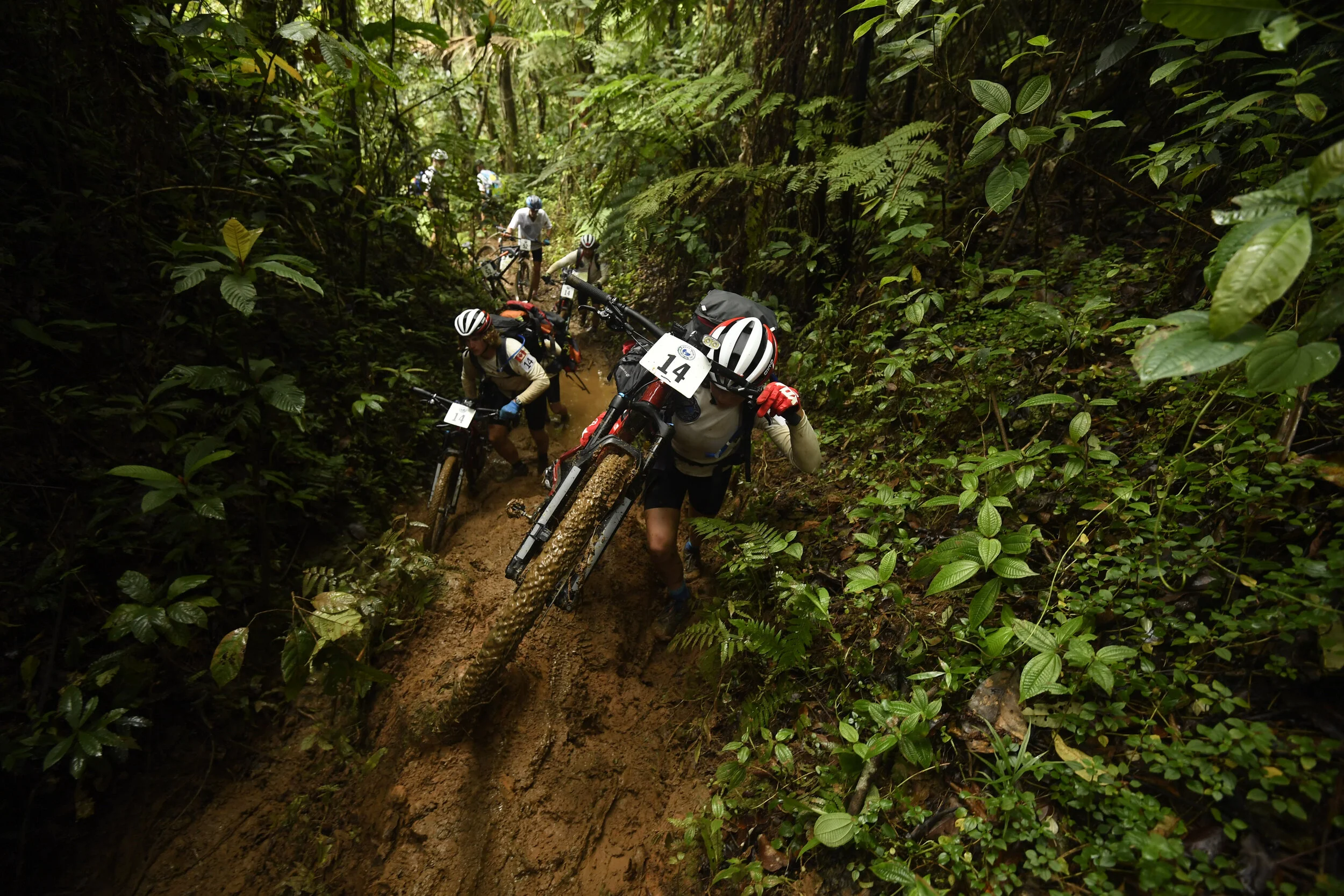



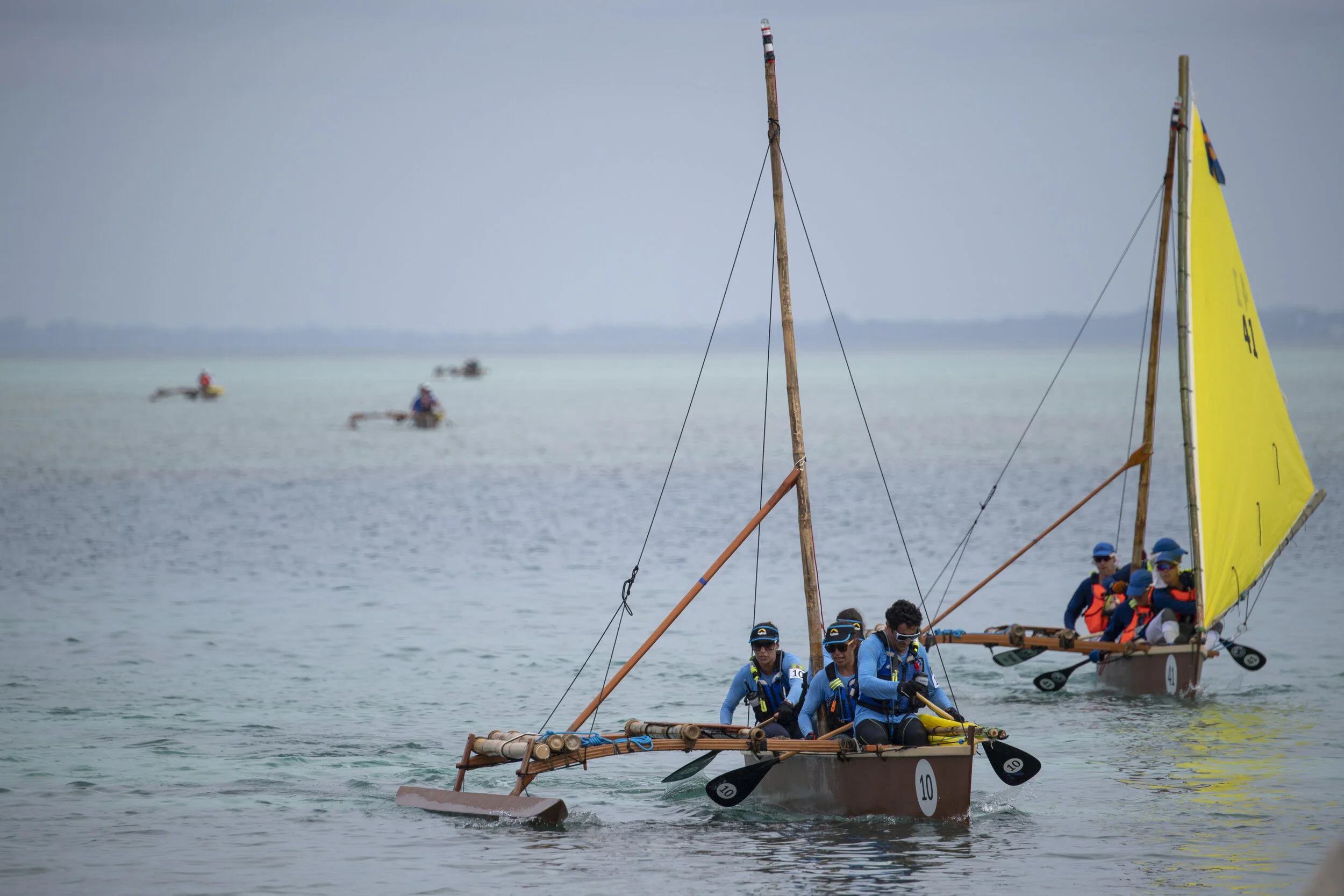
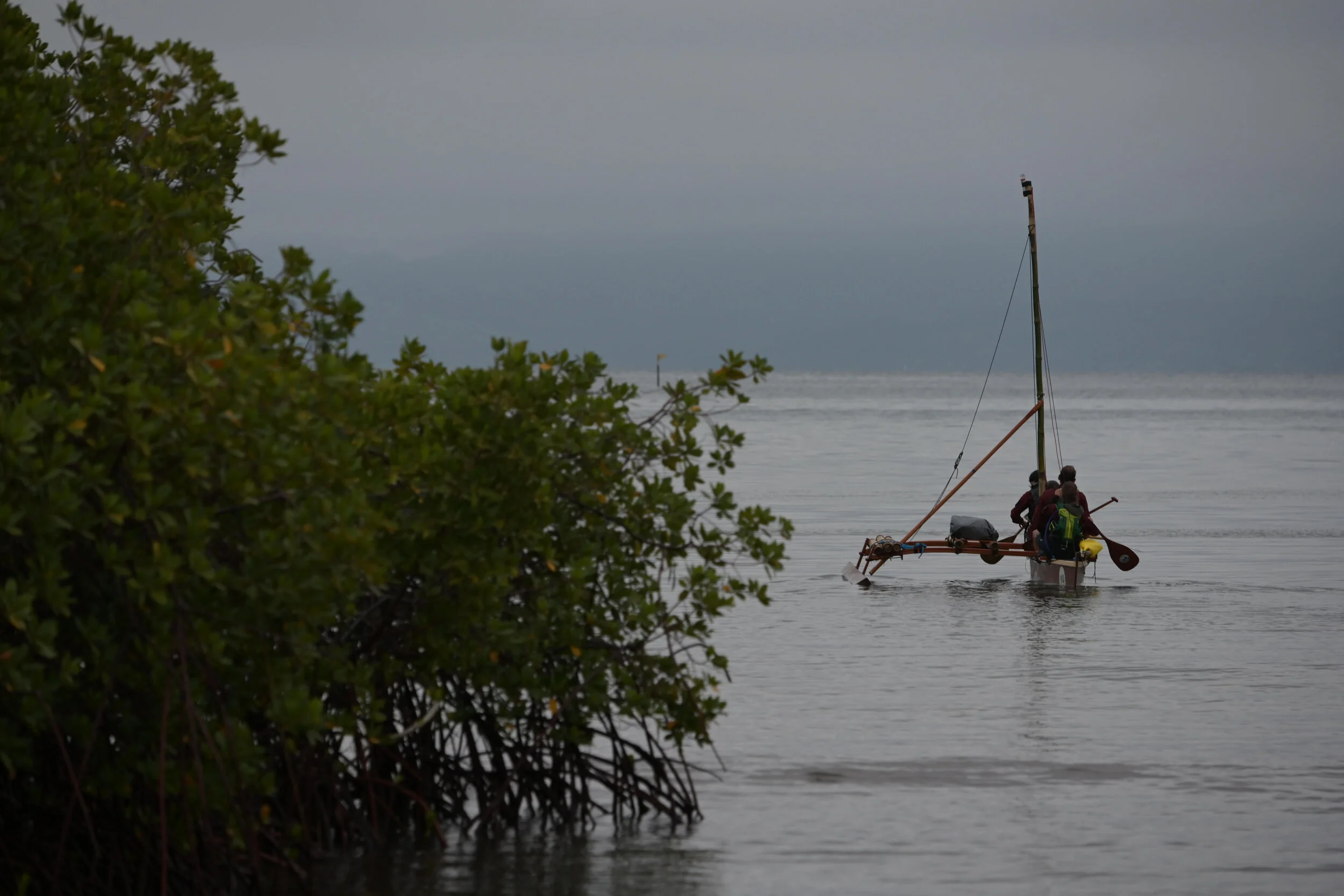
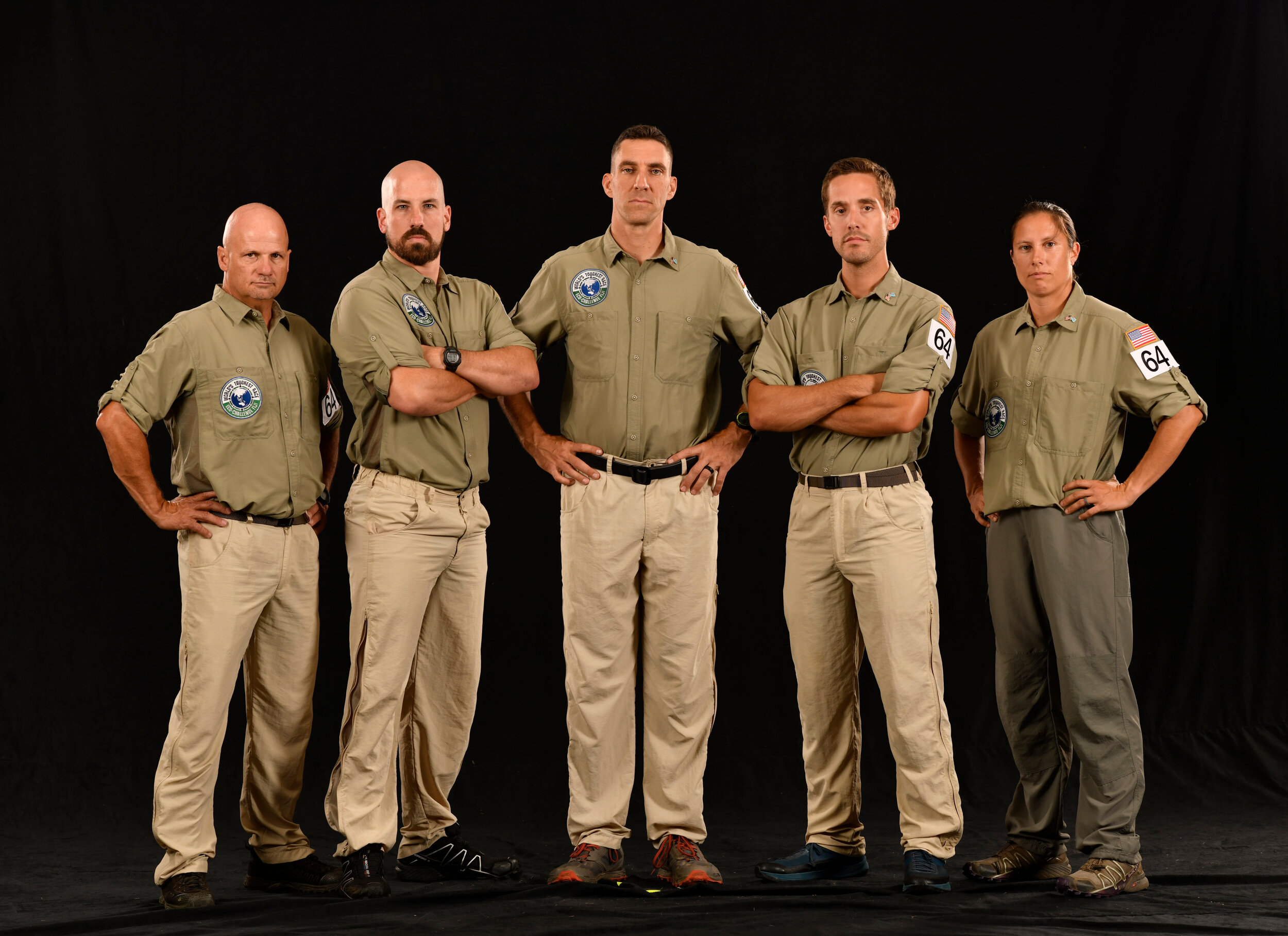

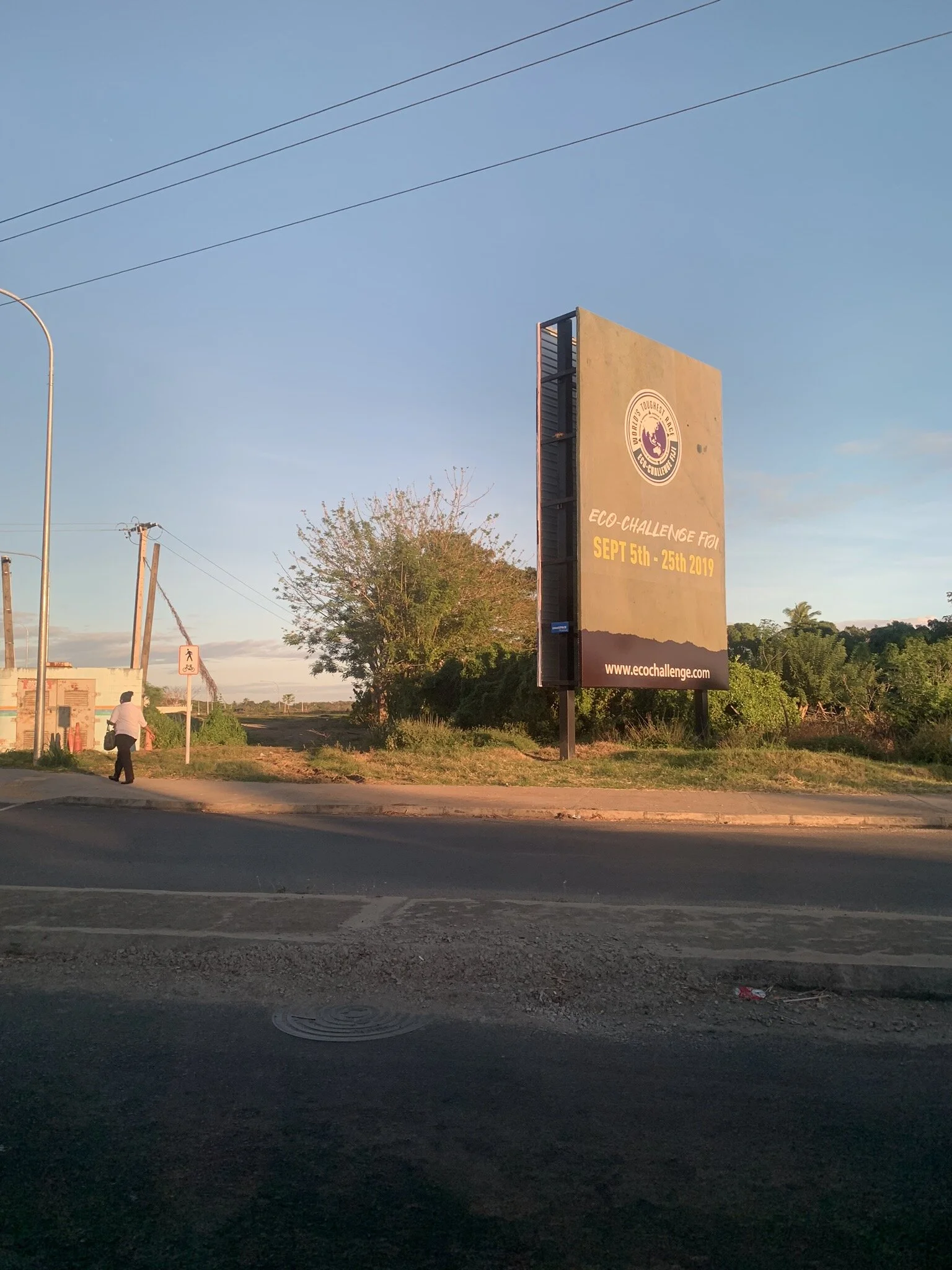
Eco-Challenge Fiji never promised to be an adventure race. Its claim was “The World’s Toughest Race”. Despite the lack of navigational challenges and jungle whacking (which was anticipated to be the hardest part of the race), Eco-Challenge Fiji was still the hardest race the members of Team US Military had ever done. The biking was tough, with incredible elevation gains and losses, and the weather added to the suck factor. This course tested the limits of racers’ mental capacity and their will to finish. Traveling across and along rocky rivers was tedious and broke some of the hardest people down. Continually slipping on rocks and banging up shins and feet tested the bounds of human fortitude and willpower.